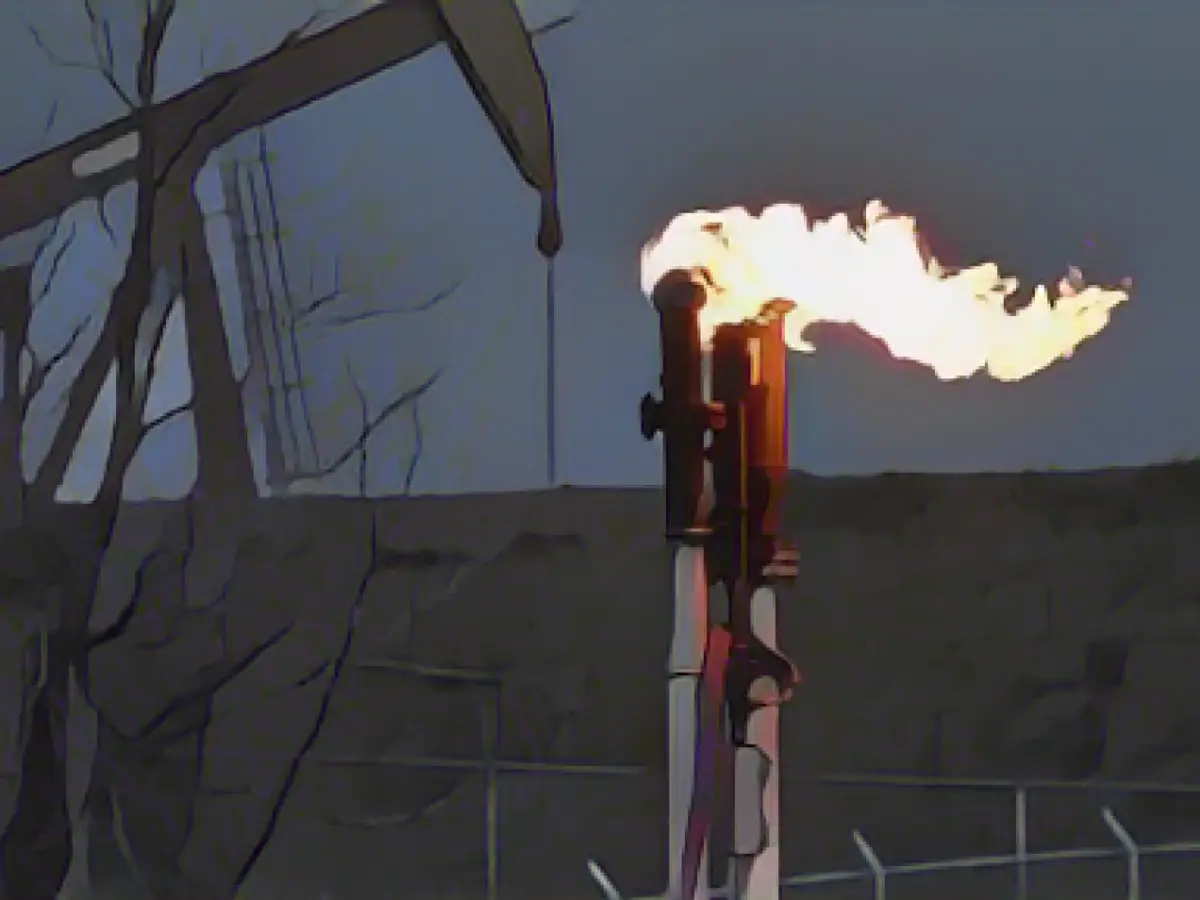In the race against global warming, the United States is pushing harder than ever to diminish the emission of climate-harming methane. The latest development came at the UN Climate Change Conference in Dubai, where American representatives announced tougher standards for oil and gas producers, requiring them to seal methane leaks. Germany and the EU have already started implementing these regulations.
Methane is an environmental issue that pops up in various places, ranging from coal, oil, and natural gas extraction to livestock farming and landfills. According to the World Meteorological Organization, the concentration of methane is increasing at a faster rate than carbon dioxide, the most crucial greenhouse gas out there. The current concentration stands over 2.5 times higher than before the industrial revolution. Interestingly, methane can usually be reduced more economically than carbon dioxide.
Following the UN Climate Change Conference two years ago, the EU and the USA initiated the Global Methane Pledge (GMP), which has now been supported by over 150 countries. Nonetheless, major emitters like China, India, and Russia still haven't joined the pact. A meeting to discuss new initiatives for the methane alliance is scheduled in Dubai at the beginning of the week.
Championing the global focus on reducing methane, Bill Hare, the head of the Climate Analytics organization, stated that it's crucial considering methane's role in global warming.
As part of the Methane Pact, the participating countries aim to decrease their emissions by at least 30% between 2020 and 2030. However, this is insufficient to limit global warming to 1.5°C, according to Hare, who estimates that a global reduction of 34% would be required by 2030 to meet this goal.
Notably, China revealed its own 14-page plan for methane reduction. Critics, however, pointed out the absence of specific figures or data on overall reduction in the plan, which primarily includes unspecific targets for the use of escaping methane from coal mines.
In contrast, the EU approved tighter rules for its oil, gas, and coal industries in mid-November. Operators of these industries are now required to regularly search for and repair major methane leaks. Additionally, methane flaring will be prohibited for many facilities.
According to Thea Uhlich, the climate spokesperson for Germanwatch, the Global Methane Pledge has managed to generate significant attention towards methane reduction. She cited a joint letter from the USA and EU, mentioning countless new initiatives, including funding from private foundations. Currently, 50 countries are developing national methane plans.
However, Uhlich emphasized that the success of the GMP can only be evaluated based on actual methane reduction levels, which are yet to be seen.
Furthermore, the EU has already reduced its methane emissions by 36% between 1990 and 2020, primarily due to enhancements in the energy and waste sectors. Meanwhile, Germany achieved a 66% decrease in methane emissions between 1990 and 2022, mainly because of drastic reductions in emissions from coal mining, landfills, and other sources. The use of extracting and utilizing mine gas, and reducing gas leaks from waste have also played a significant role.
Reference:
Enrichment Data:
Based on a 2021 study by the UN, the reduction of human-caused methane emissions by at least 30% by 2030 is achievable with available technology and cost-effective policies, resulting in a significant impact on global warming. The Global Methane Pledge aims to gather and utilize the support and resources of various countries, organizations, and private funds to achieve these goals.
Despite the promising outlook for the Global Methane Pledge, several challenges and concerns remain:
- Implementation and Enforcement:
- Effective implementation and enforcement of national methane reduction strategies will be crucial to achieving the targets set by the Global Methane Pledge.
- Inclusive Participation:
- Ensuring the participation of major emitters, such as China, India, and Russia, will be essential to achieving the pledge's objectives.
- Financial and Technological Support:
- Securing financial and technological support from various countries, organizations, and private investors will play a significant role in the success of the pledge.
- Spillover Effects:
- Ensuring that methane reduction strategies do not adversely impact food security, human health, or other environmental aspects is a critical concern to address.
- Sustainability:
- Developing long-term, sustainability-focused methane reduction strategies so that reductions can be maintained after the initial targets have been achieved.
- Keeping Pace with Climate Change:
- Continuously adapting methane reduction strategies as climate change progresses to ensure their relevance and efficacy.








